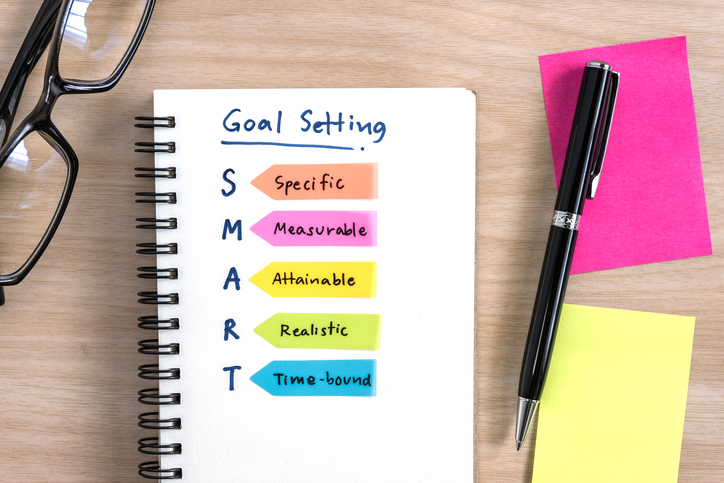Regardless of intellect, education, or industry experience, every employee faces one very real and very concrete limitation: the number of hours in the day. Sure, we could theoretically add additional time at the start and end of an already jam-packed day, but that will only go so far, and sooner or later, it will lead to burnout.
The key to maximum effectiveness isn’t necessarily to add more time to our days but rather to increase our effectiveness within the time we already have. There are a number of tools that can be used for effective time management, such as well-organized calendars, scheduling work around individual peak productivity times, and effective prioritization.
One best practice that doesn’t always come top of mind when thinking about time management is goal setting. Goal setting helps put our day-to-day activities into the broader context of long-term goals. For example, goal setting helps arrange priorities and map out the key smaller activities that are essential to success on a larger objective or initiative.
The Characteristics of Effective Goals
So what exactly makes an effective goal? Erin Osterhaus recommends the following rubric for goal setting: SMART. Goals, she says, should be specific, measurable, attainable, relevant, and time-bound.
- Specific—The goal is focused on exactly what needs to be done.
- Measurable—The goal can be measured objectively and quantitatively as opposed to just qualitatively.
- Attainable—The goal should be something that can reasonably be achieved. Goals that are beyond what is realistically accomplishable will set the goal-setter up for failure and end up wasting a lot of time in the long run.
- Relevant—Goals need to be relevant to the big picture. Setting random and irrelevant goals will only lead to wasted time and effort.
- Time-bound—Finally, a good goal has a time in which it needs to be completed. Open-ended goals become drains on time and effort.
We can’t indefinitely add hours to our days, and that’s OK. The trick is to find ways to make the most of the time we do have available, and goal setting is one of the most effective ways to make sure our days, weeks, months, and years are well planned out.
